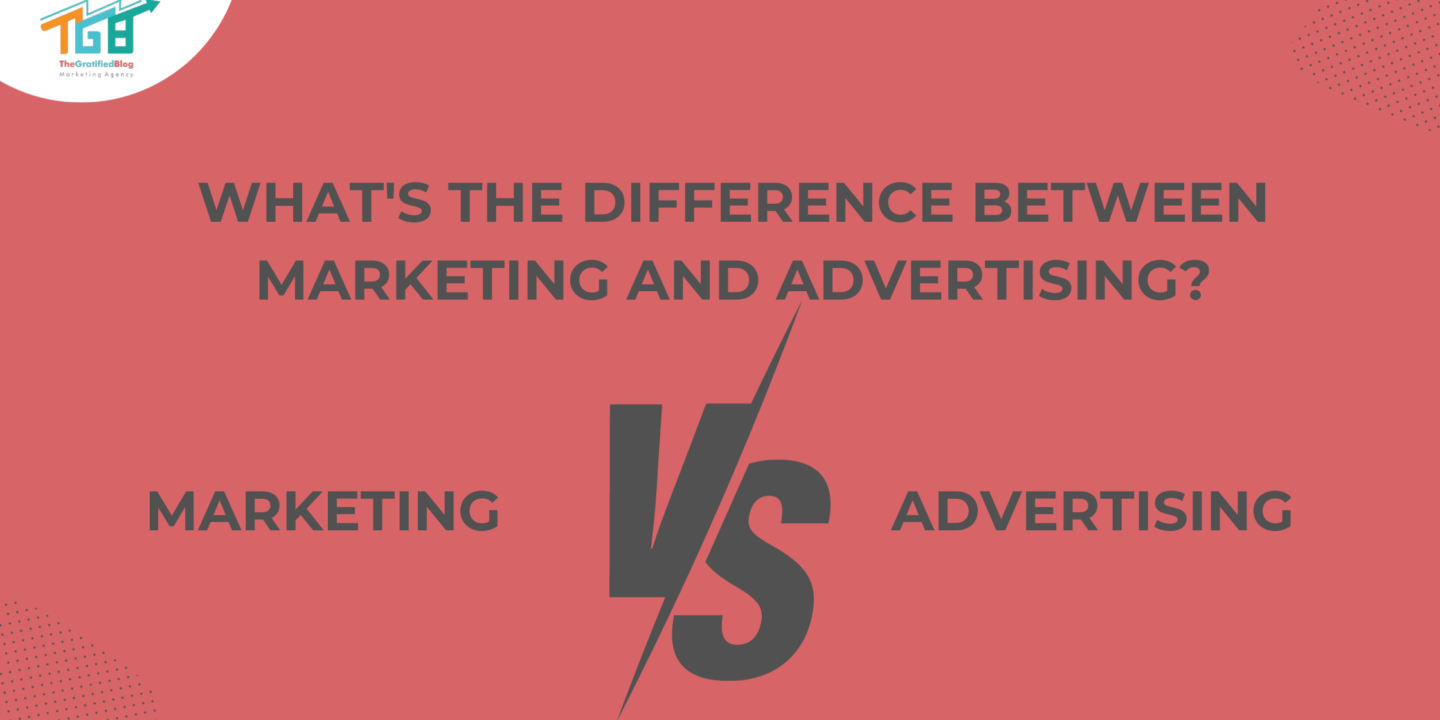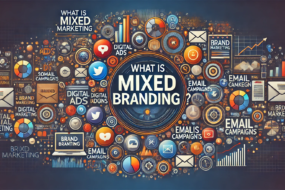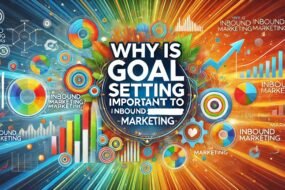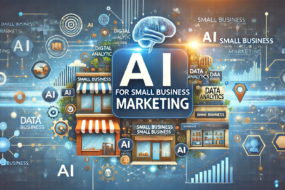
In the ever-evolving landscape of business and commerce, the terms “marketing” and “advertising” are frequently tossed around as if they were interchangeable puzzle pieces.
However, as any seasoned entrepreneur will tell you, these concepts are distinct layers in promoting products or services. One must unravel the intricacies differentiating marketing from advertising to navigate the maze of strategies effectively. So, let’s embark on a journey to answer a fundamental question: What’s the difference between marketing and advertising?
In this exploration, we’ll distinguish between marketing and advertising using terms like Scope and Strategy, Timeframe and Continuity, Relationship Building versus Immediate Impact, and Touchpoints and Channels. Buckle up for a journey into the heart of promotion strategy, where marketing and advertising stand as pillars, each contributing its distinct shade to the canvas of business success.
So, let’s get started:
Before we dive into uncovering the differences between marketing and advertising, let’s first make sure we grasp the basics of each term.
Marketing
Marketing is like the grand plan to let everyone know about a product or service and make them excited. It’s like cooking up a special recipe where you first figure out what people want. Once you know that, it’s time to create the product, decide how much it should cost, and find the best way to get it to the customers. It’s not just about selling – it’s about making people happy from the beginning to the end.
Picture it as an expansive umbrella encompassing everything, and advertising is just one part of this big strategy. It’s like a plan combining all the pieces to ensure everyone hears and loves the product.
Advertising
Advertising is like the superstar in this plan– the part that makes the product famous. It’s all about telling people how excellent the product is through particular messages. These messages are sent to a specific group of people, like a secret code to make them interested in or even want to buy the product. You’ve probably seen ads on TV, heard them on the radio, or seen them in magazines. They can even pop up online while scrolling through social media or searching.
So, think of advertising as the shining spotlight that grabs your attention and makes you notice the product in the big picture of marketing. It’s like the fantastic way the product gets introduced to the world!
Now that we’ve got the basics down let’s dig into what differentiates marketing from advertising. We’ll untangle the vital stuff that sets them apart and understand the unique things each does.
What’s The Difference Between Marketing And Advertising?
Scope And Strategy
- Marketing: It encompasses a product’s journey, from creation to ensuring customer satisfaction post-purchase. This involves meticulous planning, including extensive Market research consisting of gaining insights into the target audience and pinpointing potential customers. Marketing thinks big, considering the overall strategy for the product or service.
- Advertising: Concentrates on capturing attention swiftly and prompting immediate actions. It serves as the tactical arm of marketing, focusing on making the product known to the public. Rather than the comprehensive planning of marketing, advertising is geared towards creating awareness and generating quick responses from the audience.
Timeframe And Continuity
- Marketing: Embraces a prolonged perspective, consistently working towards securing customer happiness over time. It is a strategic and ongoing process that evolves with the shifting preferences and needs of the audience. The focus is building lasting relationships and fostering brand loyalty, ensuring sustained success beyond immediate goals.
- Advertising: Functions with short-term goals revolving around specific and immediate objectives. Whether promoting a seasonal sale or launching a new product, advertising operates within a defined timeframe. It is more goal-oriented, aiming for quick and impactful results rather than the long-term relationship-building emphasized by marketing.
Relationship Building Vs. Immediate Impact
- Marketing: Dedicates its efforts to forge enduring connections with the audience. By comprehending the audience’s desires and tailoring products or services accordingly, marketing seeks to establish a long-term commitment. It is a strategic endeavor to create a robust and lasting bond between the brand and the customer, focusing on sustained loyalty beyond immediate transactions.
- Advertising: Prioritizes swift and immediate outcomes. Its primary goal is to capture attention, deliver a concise message, and trigger instant actions like purchasing or visiting a website. Advertising is designed for instant impact, aiming To create a lasting effect on the audience and evoke immediate responses, in contrast to the more gradual relationship-building approach of marketing.
Touchpoints And Channels
- Marketing: Actively interacts with the audience through diverse touchpoints, such as product design, pricing strategies, and distribution channels. It involves a holistic method where advertising is crucial to the broader framework. Marketing ensures a seamless and comprehensive approach to engaging with the audience at multiple levels, considering various aspects of the product or service.
- Advertising: Focuses on effective message dissemination. It acts as the voice of the marketing strategy, utilizing channels like TV, radio, social media, and others to reach the intended audience. While marketing is the big picture, advertising is the specific tool to communicate the message, ensuring it resonates with the audience through various platforms and mediums.
Closing Thoughts
Having understood the distinction between marketing and advertising, Why wait longer? Start growing your business today and observe which brings the most sales for your business.
If you still have any questions related to the blog, then feel free to leave them in the comment section. We will be happy to answer you.
Thanks for reading 🙂








No Comments